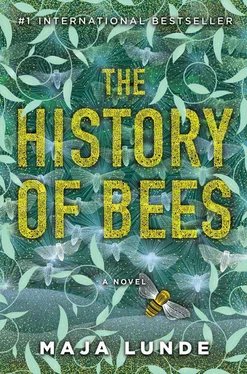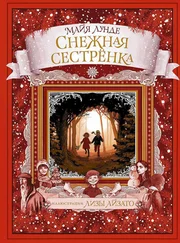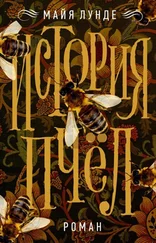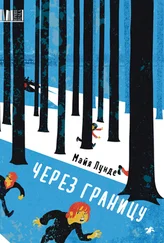“There’s Jupiter.” He pointed.
“Mm.”
I sniffed his hair, couldn’t restrain myself. But he didn’t seem to notice.
“It’s the very biggest.”
“Yes. It’s the biggest.”
“And Satum. That’s the one with the rings.”
“Saturn,” I said.
“Satum.”
“Yes. That’s the one with the rings.”
“That’s the nicest one.”
He thought for a little bit.
“Why doesn’t the earth have rings?”
“Well, I don’t know.”
“I think it should have some. That’s the nicest.”
I buried my nose in his cheek. He twisted a little, turned his face away from mine.
“You can go now, Mom.”
“I can lie here a little longer.”
“No.”
“Till you’ve fallen asleep?”
“No. You can go now.”
He was ready, the bed had been made safe for the night. My job as mother had been carried out.
I kissed him on the cheek, one last time. He didn’t even have the patience to wait, pulled the duvet over himself hard.
“Go on. I’m going to sleep.”
“Yes. I’m leaving now. Nighty-night. See you tomorrow.”
“Nighty-nightseeyoutomorrow.”
I wanted to stay there, underneath the solar system, underneath Saturn’s fluorescent, neon-green plastic rings, but woke up at the first hint of daylight. The window had no curtains and the light of dawn spread slowly across the room. I lay in the same position, tried to find my way back, to the other room, the other child’s bed, but didn’t manage.
This morning, in this strange bed, the first thing I thought of was the same as all the other mornings: his name.
Wei-Wen. Wei-Wen.
My child.
The softness. His face.
I didn’t want anything else except to hold it tightly. But another face forced its way to the surface. A face from this world. The boy, the tall, gawky boy, with the package of biscuits in his hands. His eyes on me, ready to attack.
And the old people. Many of them incapable of understanding the situation, incapable of understanding that they’d been left behind to die. But the woman who’d come towards me—it must have been a woman—she knew. My arrival had awakened her. Awakened hope.
What would happen to her?
What would happen to the gawky boy?
And what about the waiter at the café?
His father?
What had happened to Wei-Wen? What had happened to him?
Something that involved all of the others.
The closing off of the forest, the military, the fence, the secrecy.
Something that involved all of us.
I sat up quickly.
I understood it now.
I’d started in the wrong end. I’d started by wanting to find him. But I’d never find him, as long as I didn’t know what he’d been afflicted by. What it meant.
Wei-Wen’s face emerged again. But not his usual, soft child’s face. His face from that day. Wei-Wen in Kuan’s arms. The skin that grew whiter with every passing second. The breathing that was heavy. The images became clearer now. The images I’d tried not to think about, couldn’t bear to confront. I slid down onto the floor, pulled my legs up beneath me, stared straight ahead.
There he was. The pale, clammy face. The drops of sweat that trickled over the bridge of his nose. His eyes. He was conscious when Kuan came running with him. The whole tiny body struggling to breathe, breathing that tore in his chest, rasping. And the eyes scared to death. He stared right at me, couldn’t even ask for help.
Then, halfway between the hill and the complexes, his head fell backwards. He was unconscious. I saw it happen, how his gaze slid away, he disappeared.
When we arrived his breathing was just a thin thread connecting him to the world.
I leaned my head against my knees. Forced myself to relive the minutes out there. Look at his face, look at it. What had stopped his breathing? What had happened?
The paleness, the clammy skin. It resembled something I’d seen before. Suddenly another image emerged. Yet another face. Daiyu. The garden party. Daiyu lay on the ground in her light blue jumpsuit. The black shoes gleamed in the sunlight. She was clammy, too, her forehead sweaty. She tried to fill her lungs with air, the same rasping breath and the same pleading eyes. Help me , her eyes said. We stood in a circle around her. We’d been playing at the very edge of the garden, the adults sat at a table a short distance away. Daiyu’s hand was lying beside her. She was holding something. A piece of cake. The cake she’d helped herself to a little while ago. She’d just eaten it, lifted the piece off the plate, walked around eating while we played.
“Daiyu can’t breathe! She’s not breathing!” we screamed.
Suddenly her mother was there. We let her through; the mother shouted.
“My purse, bring it here. My purse!” Then she opened Daiyu’s hand and removed the piece of cake before turning to face us.
“Are there nuts in it?”
Nuts? None of us knew. Her expression was so insistent that I felt responsible. As if I should have known whether there were nuts in the cake.
Someone came running up with her purse. Daiyu’s mother dug around in it, didn’t find what she was looking for, turned it upside down. The contents fell out onto the ground. I saw a lipstick, Handi Wipes, a hairbrush. She grabbed hold of something, a little white package bearing green letters. She tore it open and took out a syringe.
Then my own mother was there. She pulled my head against her, didn’t want me to see any more. She led me gently away.
“What is it? What’s wrong with Daiyu?” I asked. “What’s wrong with her?”
It was morning. The leaves filtered the light. Everything moved above me, the trees in the wind, the clouds that slid across the sky, nothing stood still. I grew dizzy and closed my eyes. Just lay there and let the yellowness enshroud me, on my back without moving, against raw, damp soil. Because there was nothing else, there was no longer anything that could keep me away. Not the research—my passion. Not Edmund, he was lost, he’d been lost all along. Not even desire. It had disappeared. I no longer wanted to pound against the earth, euphoric, towards a climax. I wanted to let it swallow me, until I became soil myself.
I hadn’t eaten, but it made no difference. The pie continued to turn over in my stomach, stuck in my throat, dried out my mouth.
The village, the work in and around it, my own home, it could have been a thousand miles away, I had walked in the darkness until my feet ached, until no sounds slipped through any longer. The forest was trampled down in some places, I followed a path but strayed off it, wanted to get away from everything that reminded me of human beings. In the end I just collapsed on the grass.
Did they miss me? Were they looking for me? Perhaps I would hear something soon, hear their cries, all the little girls’ voices at different pitches, from Georgiana’s thin, squeaky voice, the highest on the scale, to the deepest of them, Thilda herself, whose voice jarred rudely.
Or perhaps none of them had missed me. Perhaps they were accustomed to my leaving, disappearing, perhaps they didn’t even notice I was missing.
Or were they busy with Edmund? He was ill today, he had to be, today like so many other days. He slept, presumably, until the sun had passed its zenith, was as pale as a ghost from never showing his face outdoors. But it was not illness. All the things I hadn’t understood. And no, they weren’t concerned about his illness. The day was like all others, because it was absolutely not the first time he stayed in bed like that. All the days he had dawdled away, sleeping in his bedroom, while the alcohol slowly left his body. No hereditary melancholy, only self-inflicted lethargy and damage. He was no better than the vulgar manual workers who let life slip away into pints of ale. A drunkard.
Читать дальше









